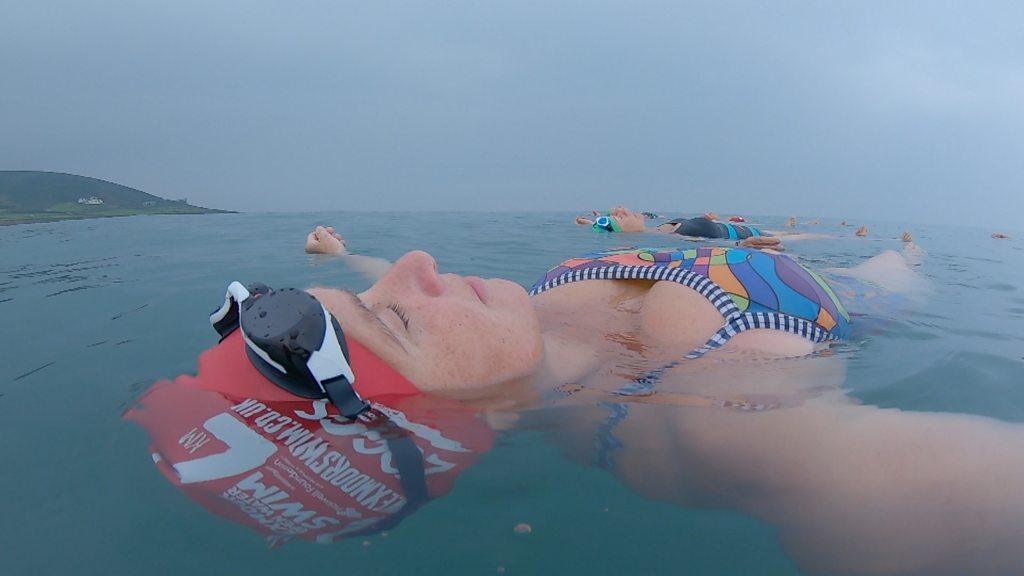Covid: Festive dips cancelled but swimmers' spirits high
- Published
Is it freezing or balmy? Whatever, it's a good hangover cure, apparently
While many of us are snuggled up in our pyjamas, every year thousands of swimmers strip off and run into the sea for an icy dip to celebrate Christmas and welcome in the new year.
For decades, beaches across Wales have been filled with people whooping and shivering as they race into the sea in swimming costumes and Santa hats.
With the coronavirus pandemic leading to the festive and new year annual dips being cancelled, charities have faced losing thousands of pounds in sponsorship money.
While many of us would welcome an excuse not to plunge into chilly water, swimmers had been determined to not let coronavirus get in the way of what has become a really jolly tradition, even if they can no longer do it on the big day.
'Hot tub and ice bucket challenge'
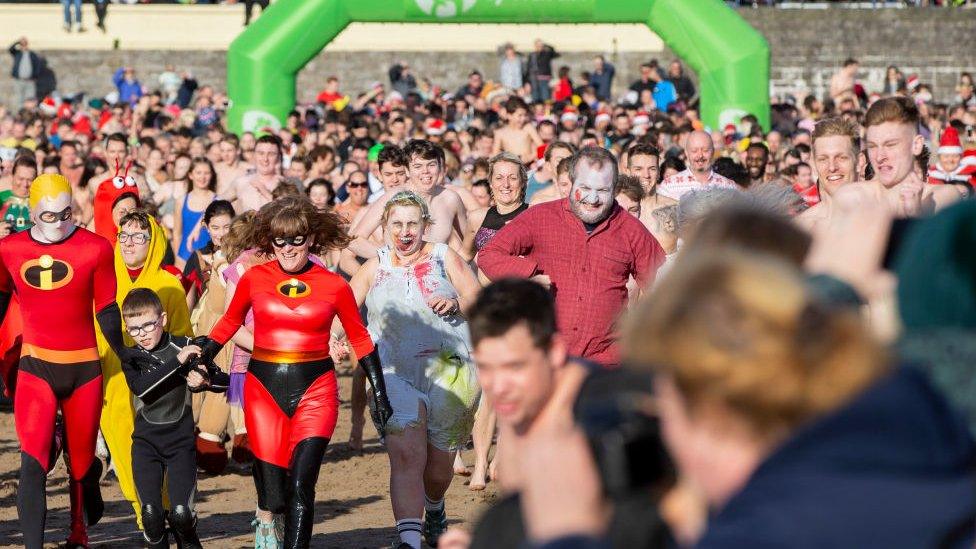
The swims across Wales, including at Barry Island, raise thousands for charities
Last year, almost 400 swimmers raced into the sea to blow off the Christmas turkey and fizz on the seafront in Rhyl as part of the annual Boxing Day swim.
After a hectic year, the RNLI crew at the popular Denbighshire seaside resort would normally raise hundreds of pounds during the icy challenge, but with the pandemic they have had to think outside of the box.
In a bid to raise cash, after attending about 80 calls in the summer months alone as people holidayed closer to home, the Rhyl crew now want people to carry on the tradition, but in true lockdown style.
"The idea is for people to do it at home. Get a family member to chuck a bucket of water over you, have a dip in the hot tub or paddling pool or bath," said mechanic Callum Robinson.
"But if you are going to do a cold one, please make sure other people are on hand to look after you, we don't want people getting cold water shock."
Mr Robinson, who is on call over Christmas, urged people to stay at home and follow government guidance, and not put their lives at risk by heading to the sea.
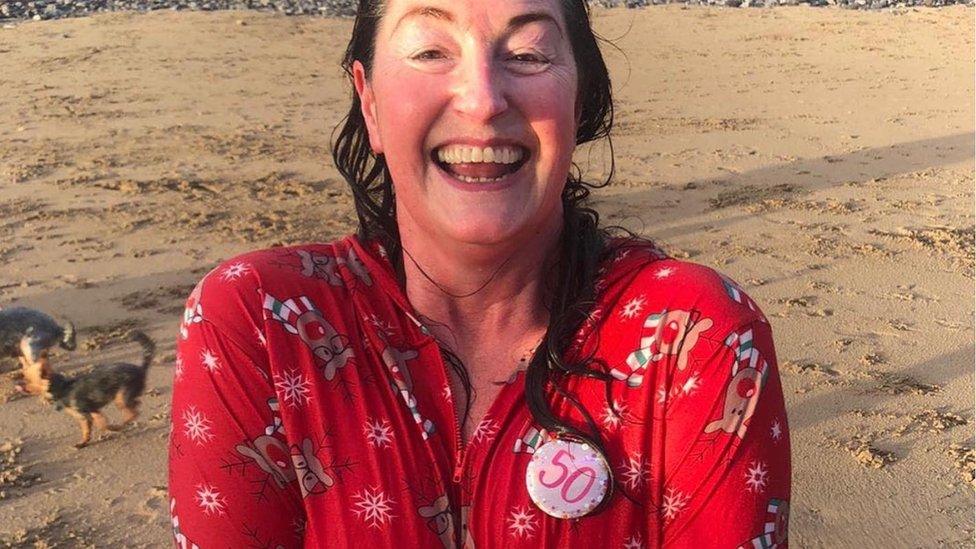
Rhian Thomas celebrated turning 50 with a chilly dip in Porthcawl
Even before lockdown was announced, organisers of Porthcawl's Christmas Day swim realised there was no way it could go ahead.
In its 55th year in 2019, the event saw more than 1,300 swimmers and 5,000 spectators head to the beach, adding up to a real social-distancing headache.
But as a key part of Christmas for so many in the seaside community and the event raising more than £17,000 for charity, organisers realised it had to go ahead in some form.
"It's all I've ever known on Christmas morning, we always got up, opened a few presents, put some fancy dress on and went a sang carols at an old people's home, before heading to the beach and watching people run into the sea," organiser Lucy Jones said.
"I thought that was normal, I didn't realise other people don't do that.
"My kids always do it now and I think it's the same for a lot of families, so it's something that's become a bit of a routine for people and they've got to think about how to fill that gap on Christmas Day."
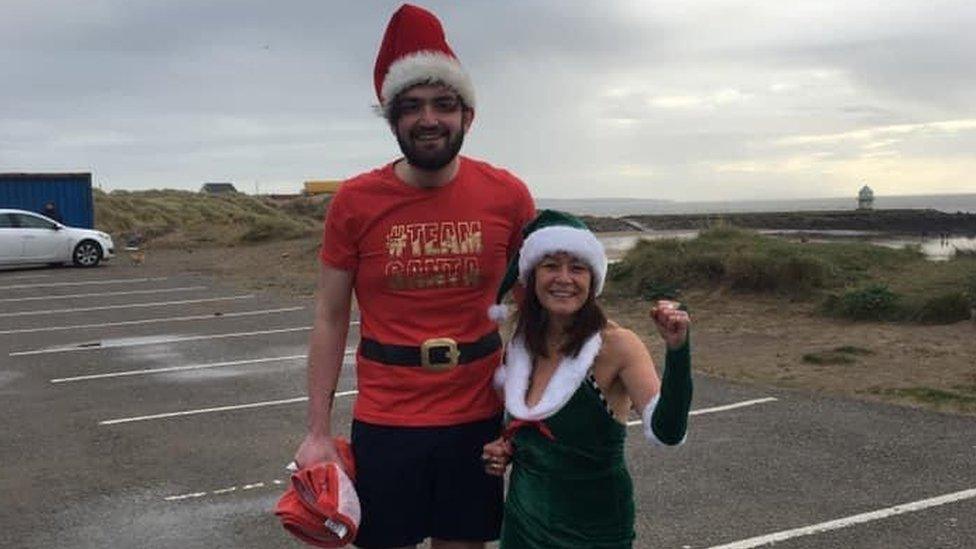
Joy and Matthew as the Jolly Sailor Team taking part in their festive dip
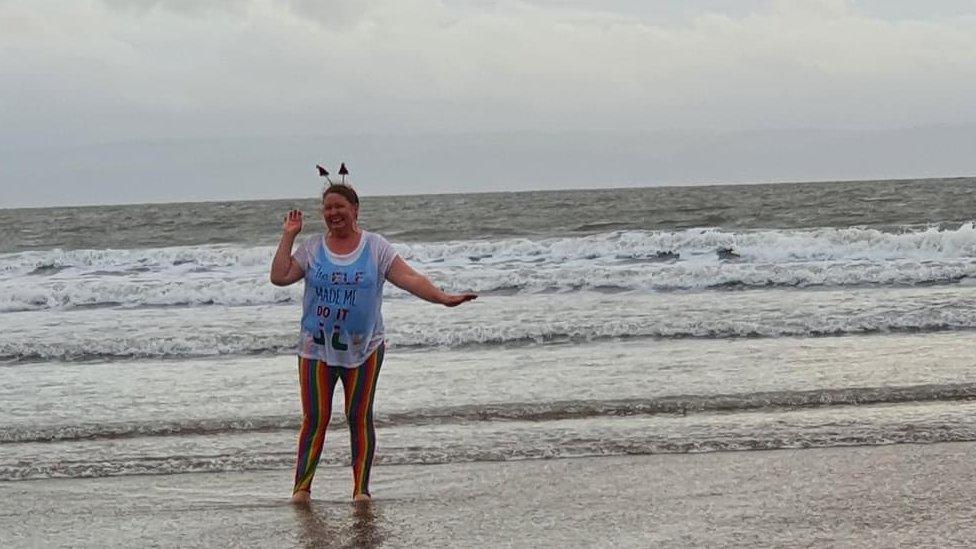
Carole Anne Lyle got festive to take part in the event before lockdown hit
But now, with people being told not to go into the sea or lakes, they are being encouraged to get soaked at home, using hoses, water pistols and hot tubs, before donating online.
Due to the success of the virtual event, Ms Jones said they were thinking of having an online challenge every year, to share the joy of Porthcawl's festivity all over the world.
"We've had people who used to live here, who now live on the other side of the world and can't come home to visit and do the swim, but this year they've been able to do it in the nice warm sea, and taken part," she said.
Heading out to exercise at Christmas, what are the rules?
What should you do if you fall into cold water - a BBC Wales reporter finds out
If you are looking to head out for a walk, bike ride or a run over the holidays you might be wondering what the rules are.
Under the level four lockdown people should stay home, but leaving your house for exercise is allowed.
There is no limit to how many times, how long you can exercise for, or how far you can go, but you should exercise alone, or only with your household or support bubble, and should not travel to exercise.
The Welsh Government is also urging people not to go into the sea or lakes, meaning wild swimming is effectively off the cards, due to concerns about safety.
- Published1 January 2020
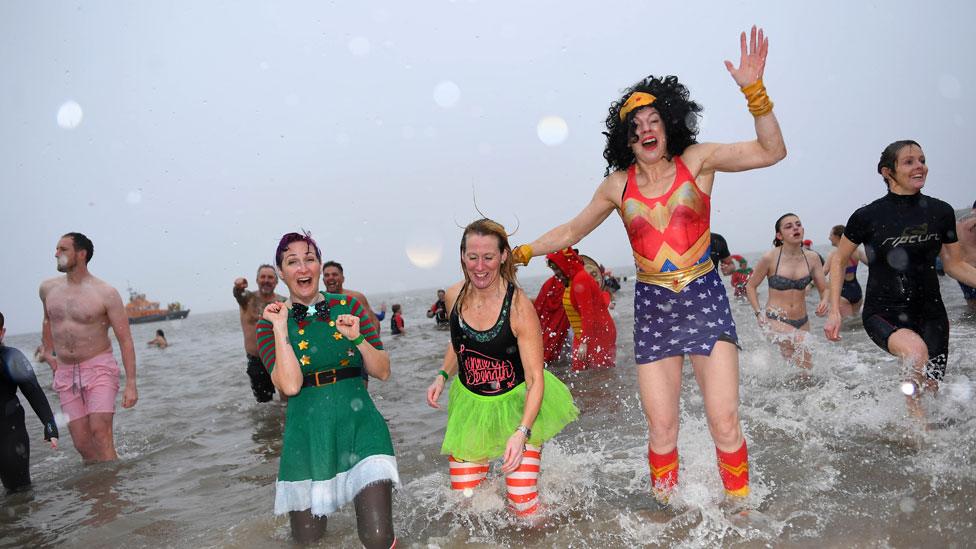
- Published25 December 2017
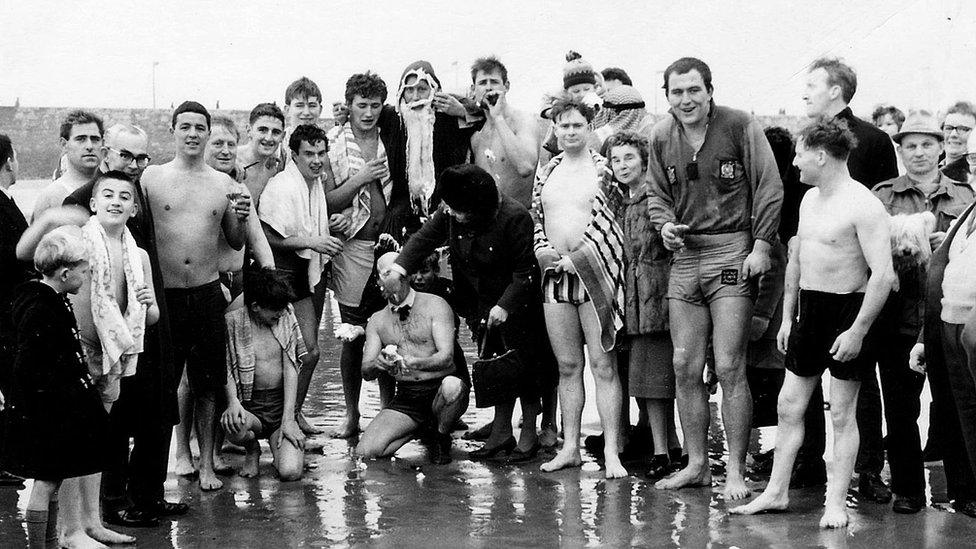
- Attribution
- Published2 July 2020
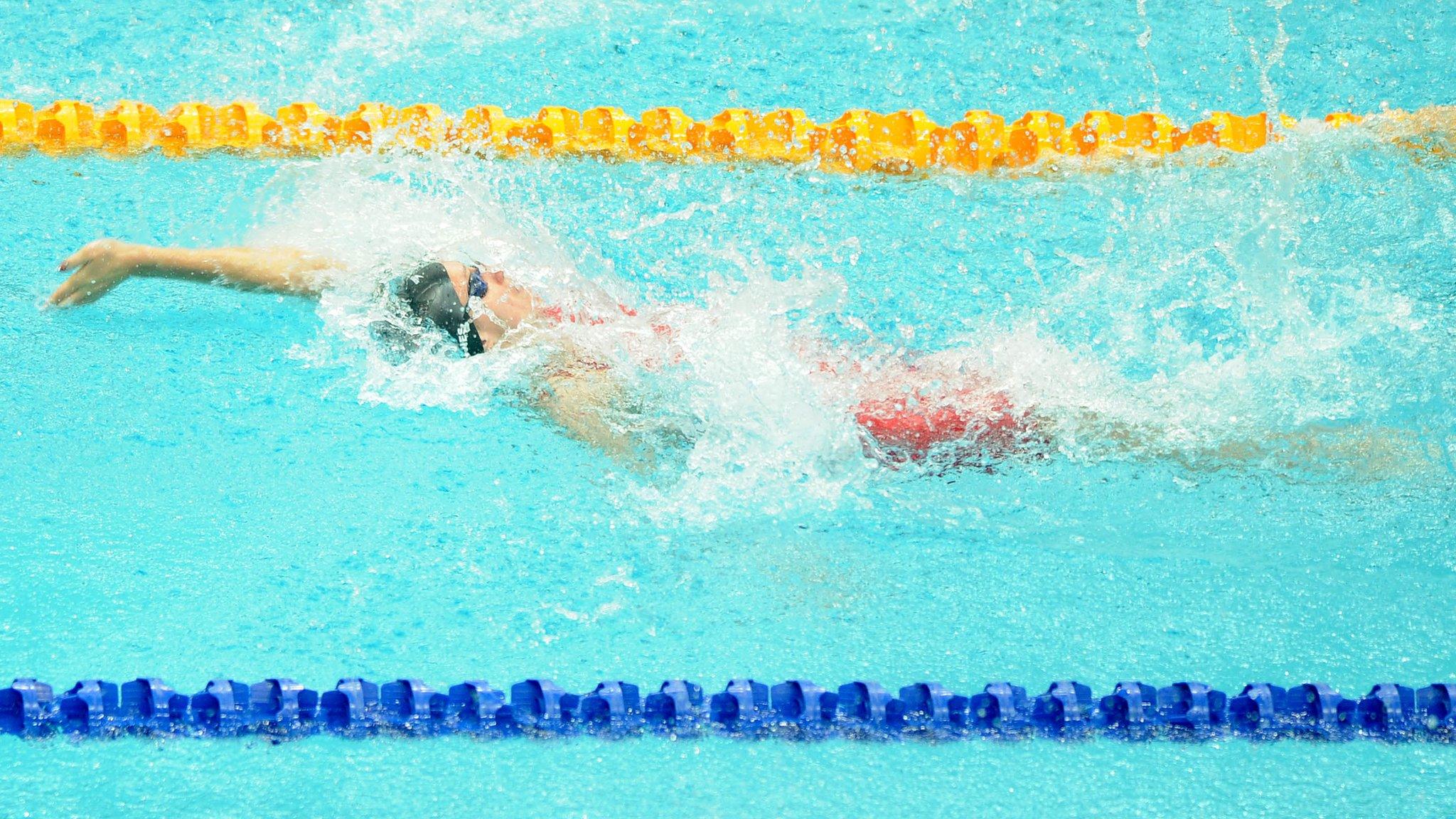
- Published24 August 2020
